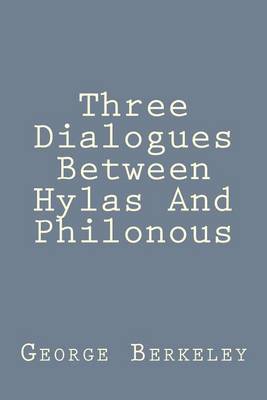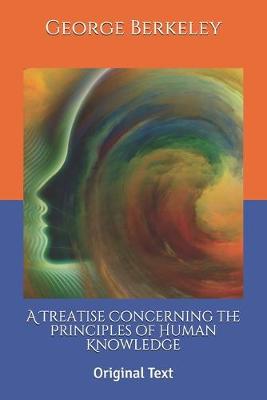Library of Liberal Arts
2 primary works
Book 39
Throughout history, but most especially during the eighteenth-century Enlightenment, great minds of philosophy grappled with two thorny questions: What are the objects of knowledge? and How do we come to know them? Using the revealing dialogue technique, Berkeley shakes the very ground of those who believe that something called matter exists to support the sensible qualities we perceive. In his critique of this view, Berkeley argues for ideas in the mind as the only true reality about which one can have knowledge. His arguments for these conclusions, and for the ultimate foundation of all sensible things, can be found in this essential work of early modern philosophy.
Book 53
In his "Principles of Human Knowledge" Berkeley makes the striking claim that physical things consist of nothing but ideas, and so do not exist outside the mind. This establishes Berkeley as the founder of the idealist tradition in philosophy. Berkeley argues vigorously that once we correct our understanding of the physical, we can find a new proof of the existence of God, refute sceptical attacks on human knowledge, and resolve many difficulties and paradoxes raised by the advance of science. The text printed in this volume is the 1734 edition of the "Principles" which is generally agreed to represent Berkeley's mature thought. Also included are the four important letters between George Berkeley and Samuel Johnson, written in 1729-30. The text is supplemented by a comprehensive introduction which looks at the structure and main arguments of the text, as well as discussing Berkeley's life, influences, and general philosophy. In addition the volume includes an analysis of the text, a glossary, detailed notes, and a full bibliography with guidance on further reading.
This new edition of Berkeley's most famous work, published alongside his other text, the "Three Dialogues" provides the student with a thorough introduction to his central ideas. The "Oxford Philosophical Texts" series consists of teaching editions of canonical texts in the history of philosophy from the ancient world down to modern times. Each volume provides a clear text together with a comprehensive introduction by a leading specialist, which should give the student detailed critical guidance on the intellectual context of the work and the structure and philosophical importance of the main arguments. Endnotes are supplied to expand further on the arguments and explain unfamiliar references and terminology, and a full bibliography and index are also included. The series aims to build up a definitive corpus of key texts in the Western philosophical tradition, which should form a reliable and enduring resource for students and teachers alike.
This new edition of Berkeley's most famous work, published alongside his other text, the "Three Dialogues" provides the student with a thorough introduction to his central ideas. The "Oxford Philosophical Texts" series consists of teaching editions of canonical texts in the history of philosophy from the ancient world down to modern times. Each volume provides a clear text together with a comprehensive introduction by a leading specialist, which should give the student detailed critical guidance on the intellectual context of the work and the structure and philosophical importance of the main arguments. Endnotes are supplied to expand further on the arguments and explain unfamiliar references and terminology, and a full bibliography and index are also included. The series aims to build up a definitive corpus of key texts in the Western philosophical tradition, which should form a reliable and enduring resource for students and teachers alike.

